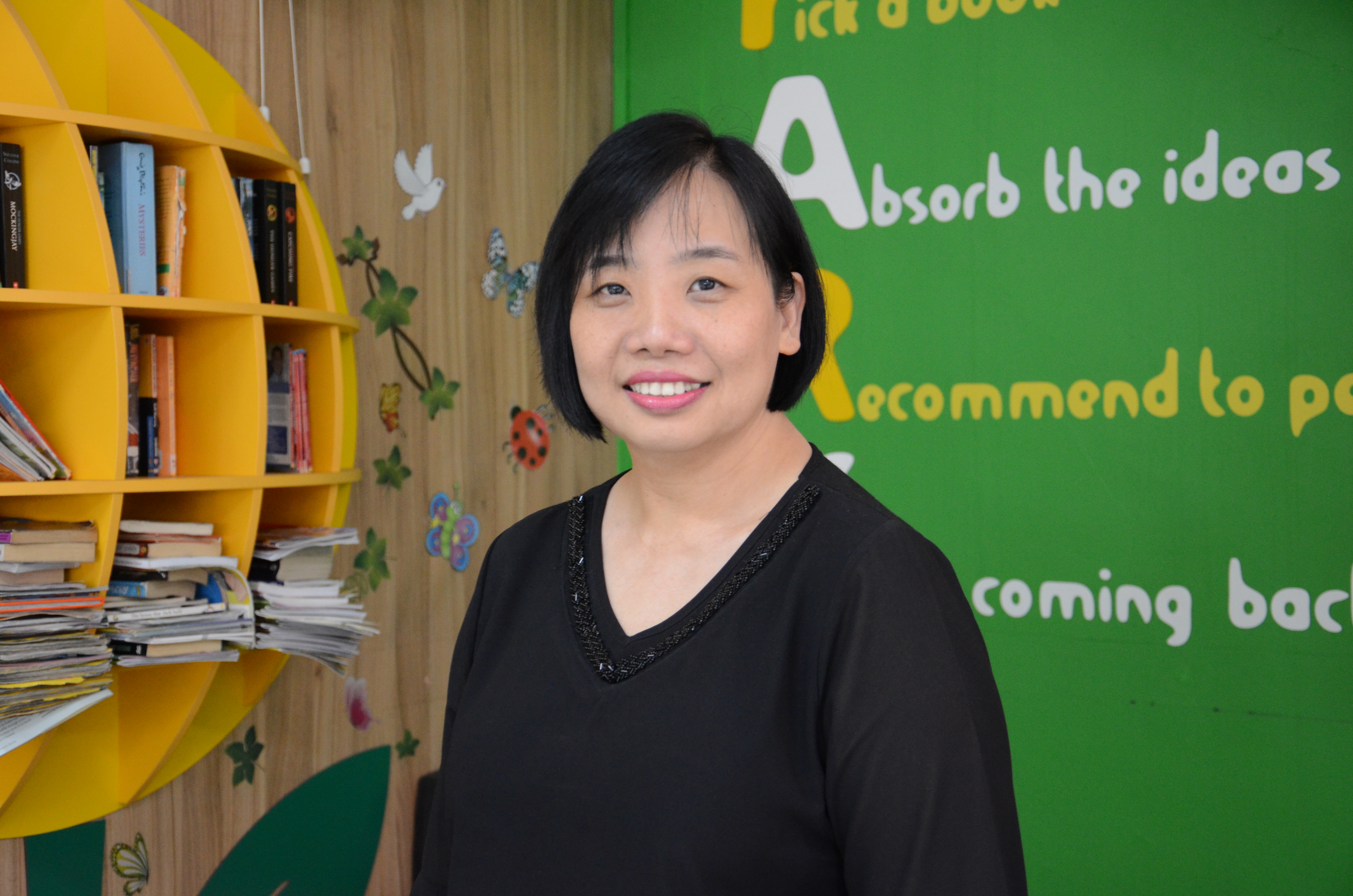Young Children’s Voices in Mathematical Problem Solving
Contributed by Dr Ho Siew Yin and Sng Wei Qin Abbie, from NTUC First Campus, for SingTeach Virtual […]
Read More
Principal of Chua Chu Kang Primary School Mrs Sheree Chong is passionate about Assessment for Learning (AfL). She shares with SingTeach how she provides direction in leading assessment change in her school.
“I believe it is a policy that is well-received by many educators,” shares Sheree on the recent announcement made by the Ministry of Education on the reduction of high-stakes assessments in schools.
“But the challenge for us educators then becomes threefold,” she says. “How we might affect mind-set change at all levels, how we might empower our curriculum leaders to design the assessment and to ensure curriculum outcomes are met and finally, how we can design clear implementation policies for the changes to take place.”

Sheree stresses that the exam policy change, albeit a welcome one, makes it crucial for teachers to ensure that the assessment needs of each subject are broken down into small and appropriate chunks to meet both the assessment and curriculum outcomes.
This process demands that Sheree and her team re-look the entire syllabus and curriculum outcomes, including the schemes of work, to fit the new assessment schedules. “As a school, we look into the learning needs of every student profile and strive to tailor our assessment to suit the purposes of each profile,” she explains.
Sheree stresses that while this involves a fair amount of work, it is also critical to the heart of assessment, which is to motivate and inculcate the joy of learning for her students. “Assessment, when implemented purposefully and appropriately, is a powerful tool that can motivate a child to learn,” Sheree adds.
To kick-start the school’s journey in AfL, Sheree gathered and encouraged all her teachers to share their beliefs and challenges in assessment and feedback.
She very quickly recognized the importance of her role as a school leader to synthesize all the available information and theories for her teachers, and to simplify complex theories into an irreducible minimum as a framework for teachers to adopt.
As a school, it was decided that the most impactful way to help every child improve would be through effective feedback. Evidence of feedback were collected and presented to the staff as examples of how theory might look like in practice.
“My advice to the teachers is simple,” Sheree shares. “Have routines in the classroom to ensure that students understand your feedback and then take action on your feedback. This is a crucial first step that can promote student motivation and improve learning outcomes.”
Sheree is also in the process of helping teachers to empower students to make their own learning decisions and reduce student’s dependency on teachers for guidance and corrective actions.
One way of knowing how much students understand a certain topic or concept is when “they are able to demonstrate the new knowledge independently, on demand and in a way that is good enough.”
“Have routines in the classroom to ensure that students understand your feedback and then take action on your feedback. This is a crucial first step that can promote student motivation and improve learning outcomes.”
– Sheree Chong, on the importance of setting appropriate routines for students
A few immediate challenges faced by the teachers in implementing AfL was on a systemic level – the worry of not being able to complete the required worksheets and the need to complete the syllabus in time for a scheduled assessment.
As a result, these teachers also worry that they might not be able to adequately prepare students for their Primary School Leaving Exam which is, after all, still a pen-and-paper assessment. “My role is thus critical in addressing teachers’ fear and anxiety, and subsequently promote a mind-set change,” Sheree shares. This was done through regular engagement sessions with teachers, listening to their concerns and designing policies to help make the change happen.
She lets on that the mind-set change is still a work-in-progress, but is heartened to see a gradual cultural shift in which the school is moving towards a deeper focus on how assessment can motivate every child.
“We must never put results ahead of everything else, because that creates fear.”
– Sheree believes that grades should not be emphasized for effective implementation of AfL
When asked about how leadership support can facilitate successful implementation of AfL, Sheree answers without a doubt, “We just have to be authentic.”
“We have to say what we mean and mean what we say,” she continues. “We ourselves have to understand the heart of AfL and be convinced about it. This will help us discover the much-needed leadership courage within us to move into some ‘new terrains’ and bring our people along with us.”
Another point of support for teachers is to acknowledge the fears that they have before trying to eradicate them. Sheree cautions that “we must never put results ahead of everything else, because that creates fear.”
Sheree therefore appeals to educators to focus on the core mission of their work: loving every child, believing in each one and giving them hope. She also spreads the same message to parents of her students.
Sheree advises, “This whole thing about assessment is not just a tactical change. For teachers, it is also emotional because we are going against developed habits and practices we used to consider the norm. It is never easy to unlearn and re-learn.”
Despite the difficulties and challenges, Sheree concludes that it has been an immensely rewarding experience for her as she looks forward to seeing her students enjoy their learning journey.